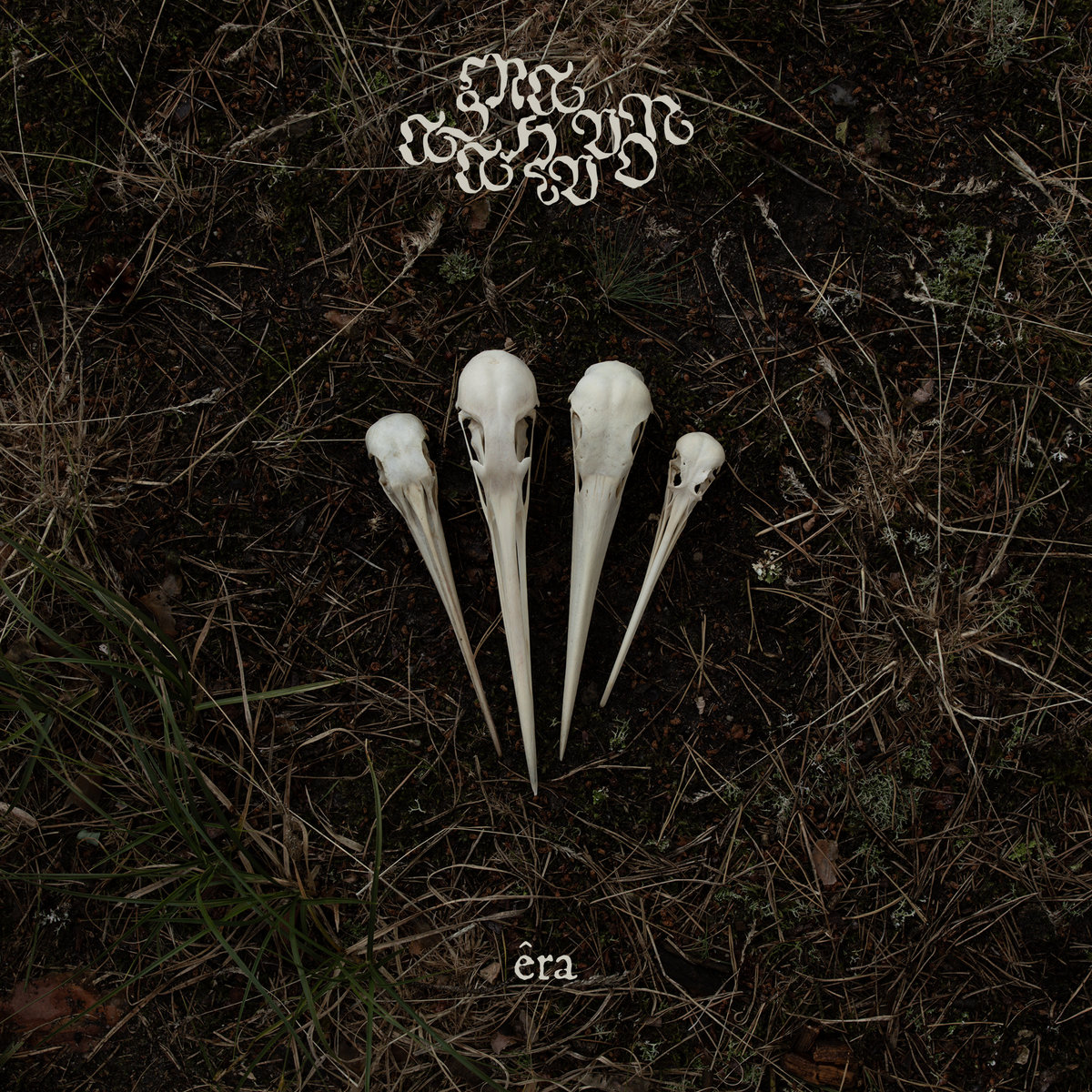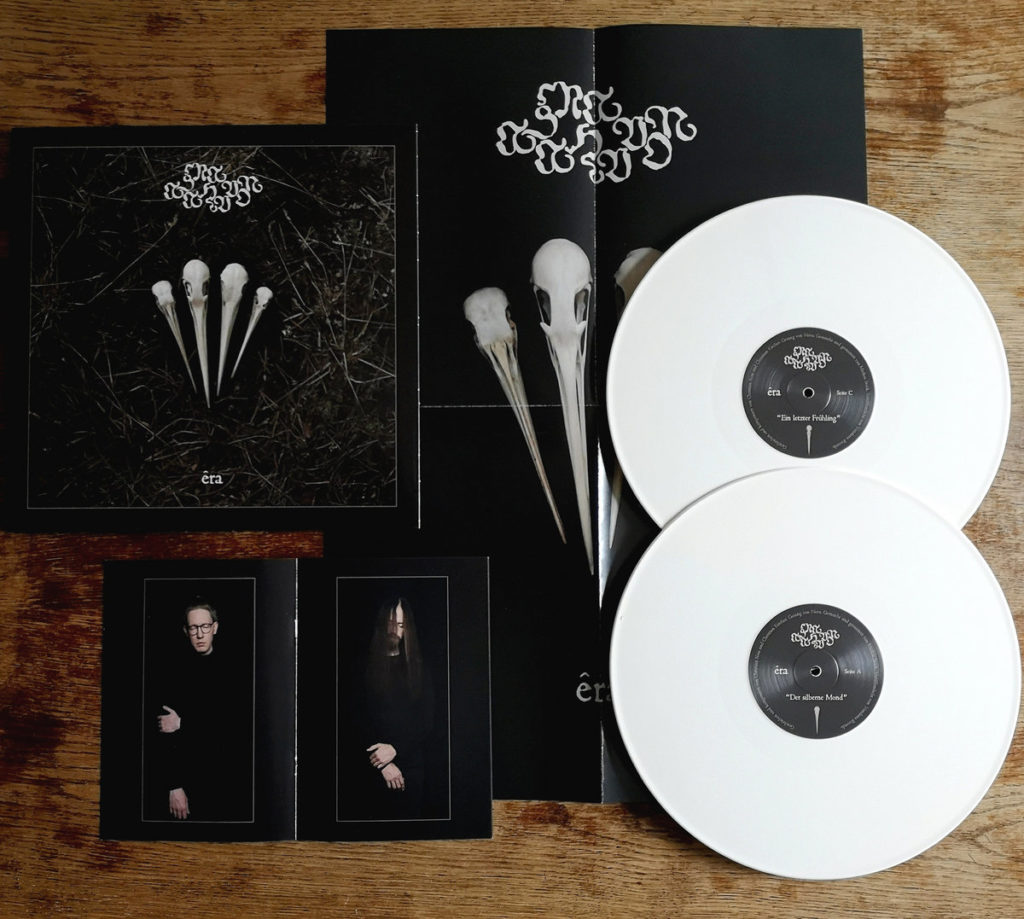Review: Asarhaddon – Êra

Across four expansive tracks, Asarhaddon conjure a landscape where mournful melody and elemental black metal collide in fierce elegance. From the first tremolo riffs to the final, haunting chords, this album feels like a slow invocation of memory and dusk. “Êra” is a sweeping monument carved from melancholy and ritual, a sophomore statement crafted with epic restraint and quiet mastery.
The record moves deliberately, building tension with mid-tempo swells and nuanced rhythm. Furnished with lush, melodic leads and dense, immersive bass, each composition unfolds like a tale told in stone and wind. Nothing feels unnecessary; the music breathes with calculated patience. The insertion of acoustic interludes and moments of stark calm grant intimacy amidst the vastness, like a flicker of light revealed through ancient forest canopy.
“Êra” is steeped in atmosphere—the kind that clings to the listener and lodges itself under skin. Its influences are clear, but never slavish: the hushed grandeur of Wolves in the Throne Room, the melancholic lilt of Emperor, but channeled through Asarhaddon’s own distillation of place and memory. The themes are epic, yet personal, their four long-form songs weaving sagas of kings, nature, and shadow, yet remaining anchored in emotional soil.
Vocally, the performance is committed and expressive, the harsh edge never loses its emotional weight. The instrumentation retains clarity even in dense passages; nothing is buried in the mix. The dynamic arcs feel compulsively listenable; the album invites repeated returns, each spin revealing new depths and hidden gems. The production is crystalline. Clarity intertwines with density; nothing is obscured, yet nothing is exposed for cheap effect. The vocals from the session singer feel like cries from the past, laden with grief and lore. Guitar leads stir like wind through cathedral corridors; bass and drums form the earth beneath the soundscape. There is space in the mix for immersion without emptiness.
If there’s a whisper of critique, it comes from its uniform pace. The mid-tempo focus can feel hypnotic but slightly unvarying. Listeners seeking sharp jolts of contrast or frantic shifts may find themselves yearning for more extremes. Nevertheless, the album’s steadfast mood and purposefulness are also its chief strengths, not weaknesses. It establishes a sense of ritual, of quiet power, of sorrow and reverence in equal measure.
This is not black metal meant to shock or wildly erupt—it is one to absorb, to inhabit. It unfolds like cold dawn in a granite valley: patient, mournful, seamless. Asarhaddon’s compositional discipline is evident; they do not need excess to embody grandeur. Through Êra, they craft not just an album but a landscape—brimming with yearning, time’s passage, the sovereignty of loss. On balance, Êra stands as a commanding testament to atmospheric black metal’s capacity for depth and gravitas. It is elegant without pretending, expressive without excess.
